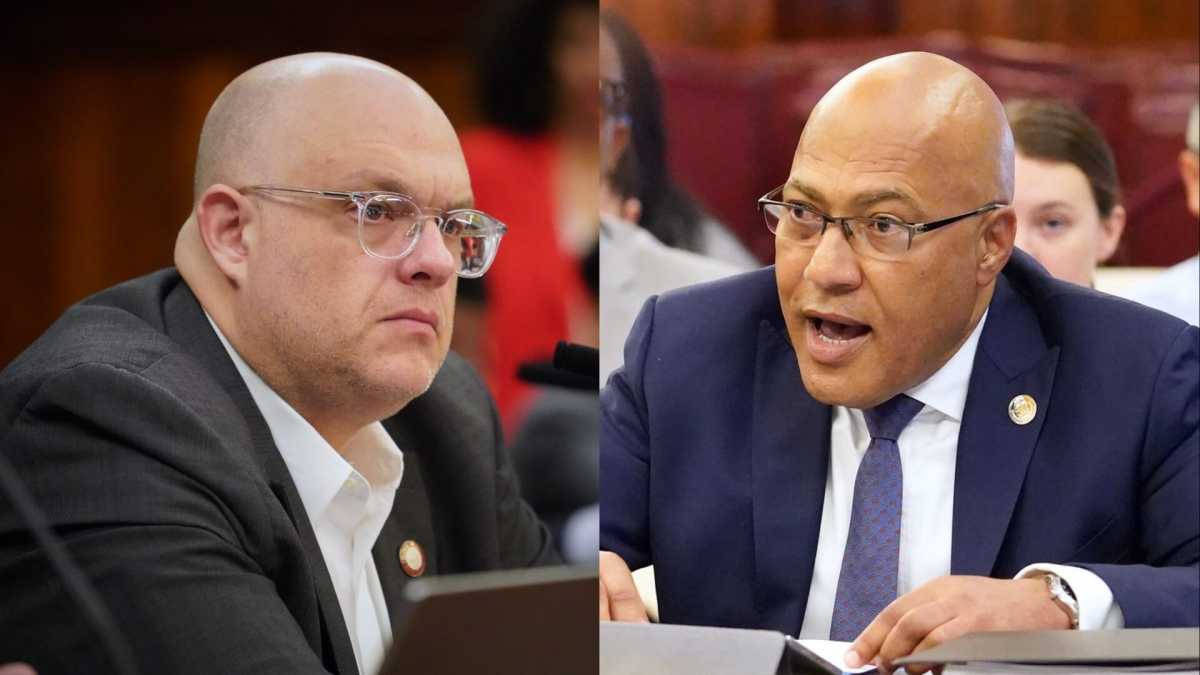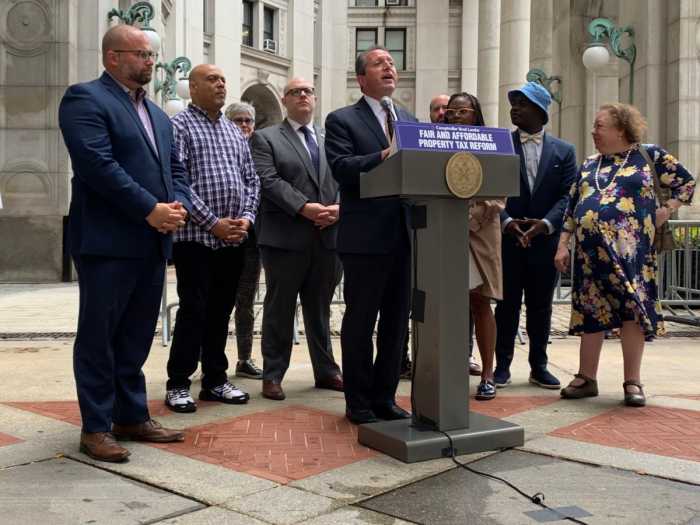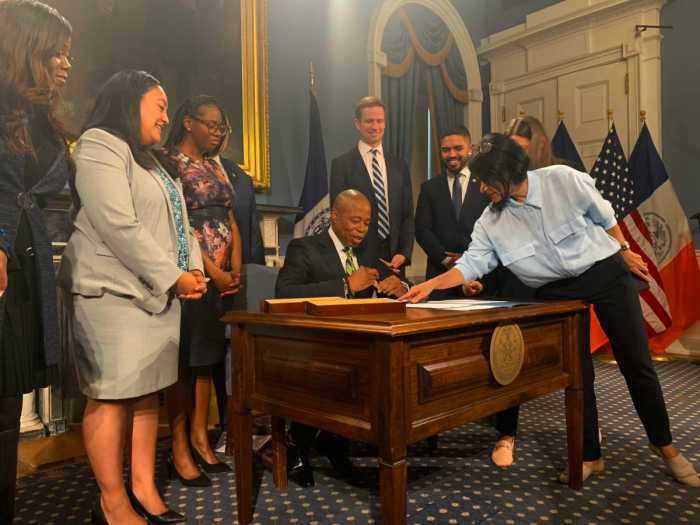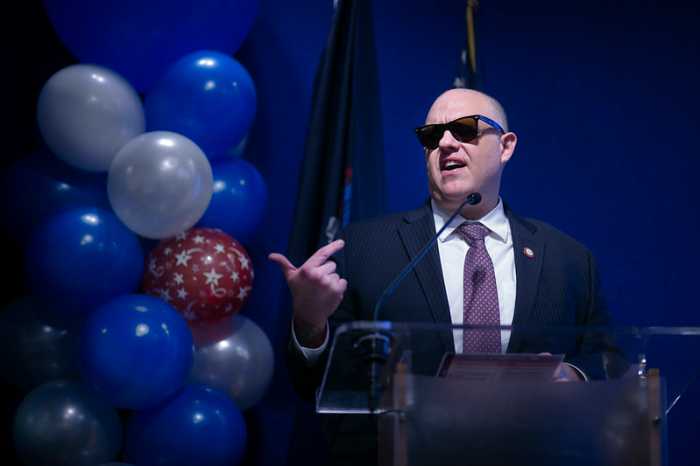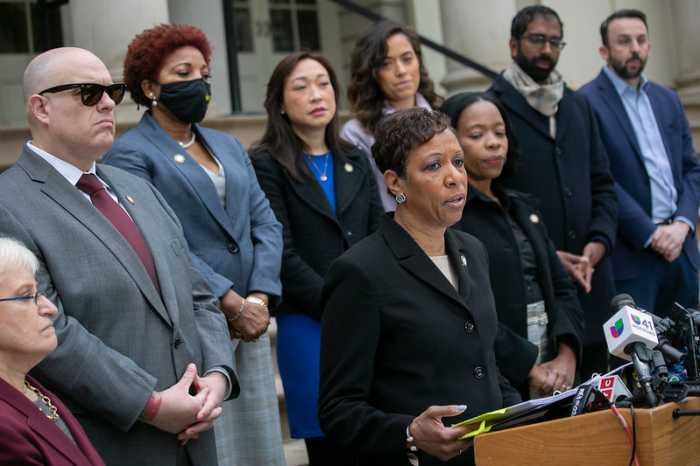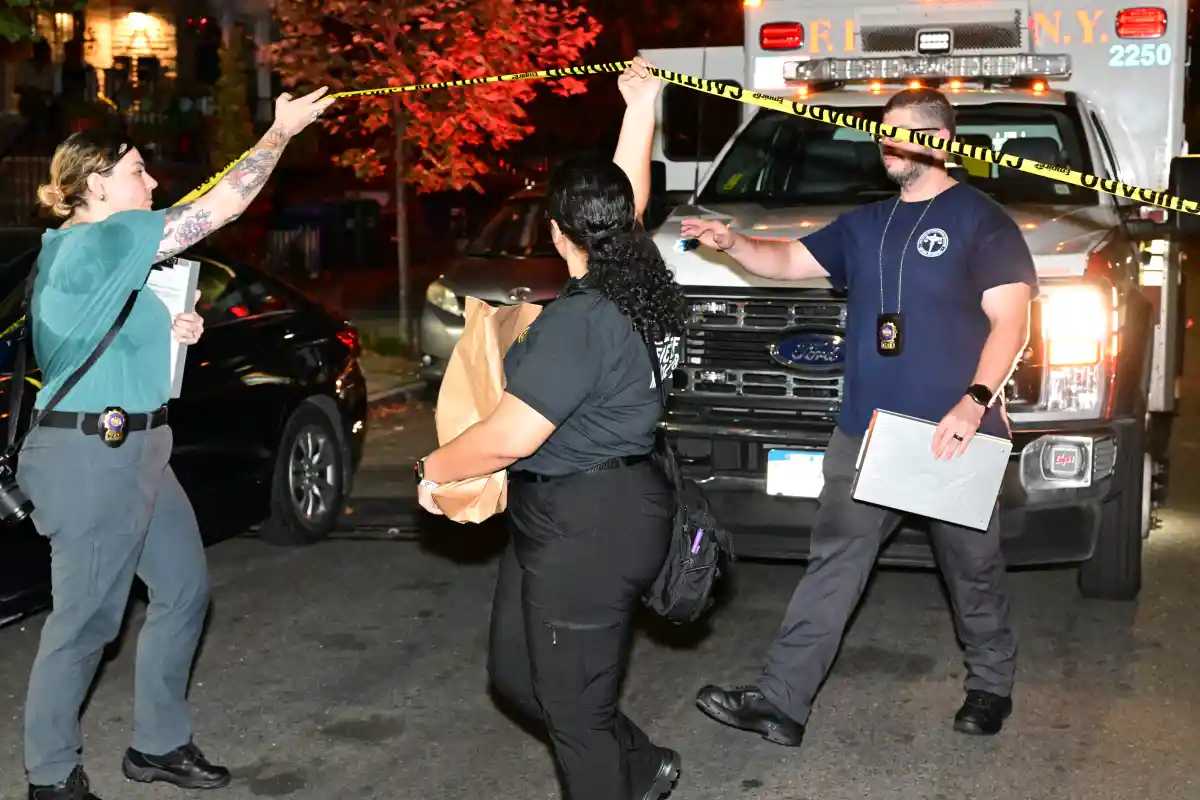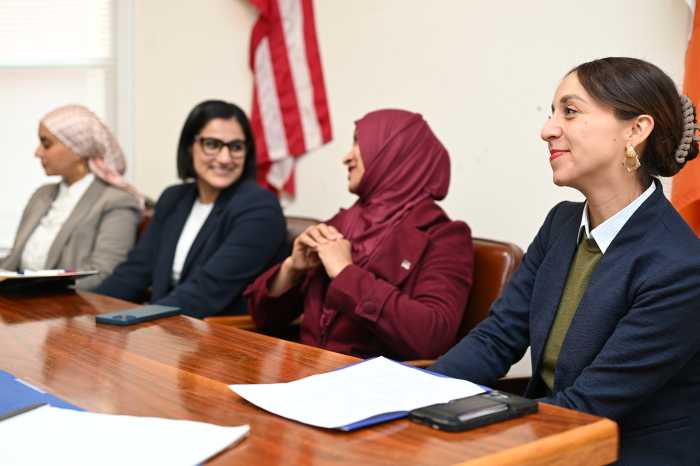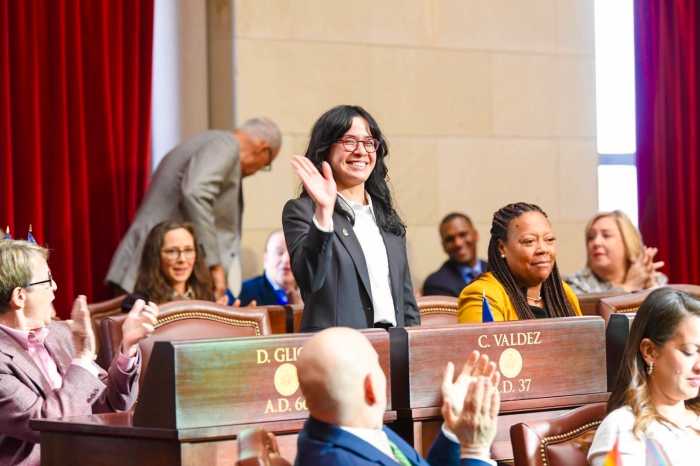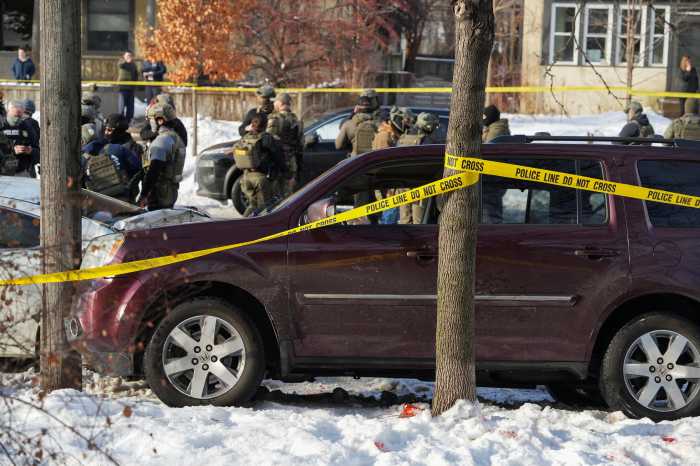A final city budget deal likely won’t come until after the June 27 City Council primaries, giving the administration and city lawmakers a tight window to pass an on-time spending plan by their July 1 deadline, Mayor Eric Adams’ Budget Director Jacques Jiha predicted Wednesday.
“My bet is that we are at least gearing up to have a budget after the primary,” Jiha said during a question-and-answer session with Citizens Budget Commission President Andrew Rein at Club 101 in Midtown Manhattan Wednesday morning.
That’s a “very, very, very, very tight window,” he added.
The mayor himself didn’t rule out the possibility of a late budget when asked about it by a reporter Wednesday morning, saying: “we will see what happens.”
While there aren’t many competitive council primaries this cycle, several council members will likely still be consumed by their re-election contests for the bulk of June, which could divert their focus from negotiating the mayor’s $107 billion Fiscal Year 2024 executive budget.
But City Council Finance Chair Justin Brannan (D-Brooklyn) told amNewYork Metro, in a statement, the council expects the budget to pass on time regardless of the primary schedule. Brannan himself isn’t facing a primary challenger.
“We just finished two weeks of budget hearings and we have a lot of work to do in order to get this budget to a good place but the ‘late budget’ narrative isn’t coming from our side of City Hall,” Brannan said. “The council will continue to prioritize delivering a budget that protects the fiscal health of our city and meets the needs of all New Yorkers and communities in this moment. We intend to be thoughtful, responsible, and deliberative in that charter-mandated process as we always are.”
“We can all walk and chew gum at the same time,” he added.
Jiha — who leads the Mayor’s Office of Management and Budget (OMB) — said he’s bracing for a tumultuous round of negotiations with the council due to differences between how each side of City Hall views the Big Apple’s current financial situation.
Council members, Jiha said, believe the city has enough money to reverse three rounds of spending cuts OMB has made over the past year, while also adding funding across several agencies. But lawmakers are only looking at the increased revenue, he said, and not considering significant expenses the city faces.
That’s why, Jiha said, he immediately knew council members would seize on a recent better-than-expected revenue forecast to justify more spending.
“We knew that that piece is going to create a problem because the council is going to pay attention only to that piece of the puzzle, the revenue side,” Jiha said. “Because they totally ignore the expense side of the ledger, they only focus on the revenue side. ‘So, there is money, there’s money to be spent.’”
The budget director took aim at the council’s most recent revenue forecast, released last week, which was $1.8 billion higher for the current fiscal year and the next than OMB’s. He said the council released the report despite his office briefing them on mounting projected expenses incurred by providing for tens of thousands of migrants — at least $4.3 billion between this fiscal year and next; and about $500 million in cuts and cost shifts coming from the state budget, which passed after the mayor unveiled his executive budget and thus wasn’t factored into that plan.
“It’s going to be extremely difficult in this environment to really negotiate a budget,” he said.
City lawmakers were enraged by similar comments Jiha made during last week’s executive budget hearing, with Council Member Charles Barron saying “you’ve got a lot of nerve” in response to the remarks.
He took particular issue with a recent package of City Council bills that would greatly expand access to rental assistance vouchers for homeless and very low-income New Yorkers that passed the chamber by a veto-proof majority last week. The bills, Jiha said, were approved without consideration of how the city would foot their estimated price tag, which OMB projects will be $17 billion over the next five years.
The council, however, disputes that figure, arguing it will actually only cost $10 billion over that same period. Additionally, the council has argued spending on expanding the voucher program, known as CityFHEPS, would cost significantly less than if it keeps spending on costly emergency contracts for sheltering migrants — because the vouchers would help people move out of the homeless shelter system and free up space for newcomers.
But Brannan hit back in a Wednesday afternoon statement, characterizing Jiha’s remarks as showing “arrogance and tolerate disrespect.”
“I feel it is important to remind Director Jiha that the Council’s charter-mandated responsibility is to hold the administration accountable, and that means examining and questioning their assertions and numbers,” Brannan said. “It’s not personal, it’s our job. The Council is not a rubber stamp, nor is this a monarchy. Rather, we are a co-equal branch of city government, and we will not respond to arrogance and tolerate disrespect.”
Brannan added the council intends to fight for restoring the budgets of city agencies whose leaders testified during recent budget hearings that they don’t currently have the resources needed to accomplish their core missions.
“Over the last two weeks of budget hearings, we heard directly from city agencies who simply don’t have what they need to effectively respond to the multiple crises facing our city,” he said. “Further cutting these agencies is not fiscally responsible. The Council is looking for a partner to negotiate with to deliver a budget that protects the fiscal health of our City and essential services that New Yorkers rely on. We are prepared to do that on time, and would hope that is true for the other side of City Hall.”



